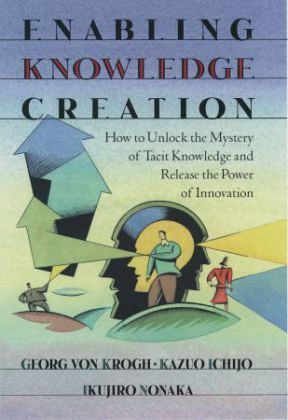
Enabling Knowledge Creation
Versandkostenfrei!
Versandfertig in 1-2 Wochen
78,99 €
inkl. MwSt.
Weitere Ausgaben:

PAYBACK Punkte
39 °P sammeln!
When The Knowledge-Creating Company (OUP; nearly 40,000 copies sold) appeared, it was hailed as a landmark work in the field of knowledge management. Now, Enabling Knowledge Creation ventures even further into this all-important territory, showing how firms can generate and nurture ideas by using the concepts introduced in the first book. Weaving together lessons from such international leaders as Siemens, Unilever, Skandia, and Sony, along with their own first-hand consulting experiences, the authors introduce knowledge enabling-the overall set of organizational activities that promote knowle...
When The Knowledge-Creating Company (OUP; nearly 40,000 copies sold) appeared, it was hailed as a landmark work in the field of knowledge management. Now, Enabling Knowledge Creation ventures even further into this all-important territory, showing how firms can generate and nurture ideas by using the concepts introduced in the first book. Weaving together lessons from such international leaders as Siemens, Unilever, Skandia, and Sony, along with their own first-hand consulting experiences, the authors introduce knowledge enabling-the overall set of organizational activities that promote knowledge creation-and demonstrate its power to transform an organization's knowledge into value-creating actions. They describe the five key "knowledge enablers" and outline what it takes to instill a knowledge vision, manage conversations, mobilize knowledge activists, create the right context for knowledge creation, and globalize local knowledge. The authors stress that knowledge creation must be more than the exclusive purview of one individual-or designated "knowledge" officer. Indeed, it demands new roles and responsibilities for everyone in the organization-from the elite in the executive suite to the frontline workers on the shop floor. Whether an activist, a caring expert, or a corporate epistemologist who focuses on the theory of knowledge itself, everyone in an organization has a vital role to play in making "care" an integral part of the everyday experience; in supporting, nurturing, and encouraging microcommunities of innovation and fun; and in creating a shared space where knowledge is created, exchanged, and used for sustained, competitive advantage. This much-anticipated sequel puts practical tools into the hands of managers and executives who are struggling to unleash the power of knowledge in their organization.














